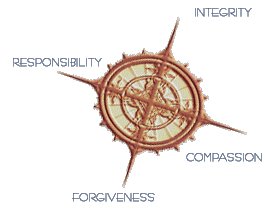We as Christians know that marriage has evolved over time and we must be able to explain this. This evolution begs the question:
Why
did God allow polygamy in the Old Testament? The Bible does not specifically say
why God allowed polygamy. As we speculate about God’s silence, there are a few
key factors to consider. First, while there are slightly more male babies than
female babies, due to women having longer lifespans, there have always been more
women in the world than men. Current statistics show that approximately 50.5
percent of the world population are women. Assuming the same percentages in
ancient times, and multiplied by millions of people, there would be tens of
thousands more women than men. Second, warfare in ancient times was especially
brutal, with an incredibly high rate of fatality. This would have resulted in an
even greater percentage of women to men. Third, due to patriarchal societies, it
was nearly impossible for an unmarried woman to provide for herself. Women were
often uneducated and untrained. Women relied on their fathers, brothers, and
husbands for provision and protection. Unmarried women were often subjected to
prostitution and slavery. The significant difference between the number of women
and men would have left many, many women in an undesirable
situation.
So,
it seems that God may have allowed polygamy to protect and provide for the women
who could not find a husband otherwise. A man would take multiple wives and
serve as the provider and protector of all of them. While definitely not ideal,
living in a polygamist household was far better than the alternatives:
prostitution, slavery, or starvation. In addition to the protection/provision
factor, polygamy enabled a much faster expansion of humanity, fulfilling God’s
command to “be fruitful and increase in number; multiply on the earth” (Genesis
9:7). Men are capable of impregnating multiple women in the same time period,
causing humanity to grow much faster than if each man was only producing one
child each year.
2) How does God view polygamy today? Even while allowing polygamy, the Bible presents monogamy as the plan which conforms most closely to God’s ideal for marriage. The Bible says that God’s original intention was for one man to be married to only one woman: “For this reason a man will leave his father and mother and be united to his wife [not wives], and they will become one flesh [not fleshes]” (Genesis 2:24). While Genesis 2:24 is describing what marriage is, rather than how many people are involved, the consistent use of the singular should be noted. In Deuteronomy 17:14-20, God says that the kings were not supposed to multiply wives (or horses or gold). While this cannot be interpreted as a command that the kings must be monogamous, it can be understood as declaring that having multiple wives causes problems. This can be clearly seen in the life of Solomon (1 Kings 11:3-4).
So when people tell you that traditional marriage used to be multiple wives, agree with them and say that marriage has evolved over time. But always remind them that marriage, although it has evolved, has ALWAYS been between opposite sexes. It has NEVER been between same sexes. 2) How does God view polygamy today? Even while allowing polygamy, the Bible presents monogamy as the plan which conforms most closely to God’s ideal for marriage. The Bible says that God’s original intention was for one man to be married to only one woman: “For this reason a man will leave his father and mother and be united to his wife [not wives], and they will become one flesh [not fleshes]” (Genesis 2:24). While Genesis 2:24 is describing what marriage is, rather than how many people are involved, the consistent use of the singular should be noted. In Deuteronomy 17:14-20, God says that the kings were not supposed to multiply wives (or horses or gold). While this cannot be interpreted as a command that the kings must be monogamous, it can be understood as declaring that having multiple wives causes problems. This can be clearly seen in the life of Solomon (1 Kings 11:3-4).



No comments:
Post a Comment